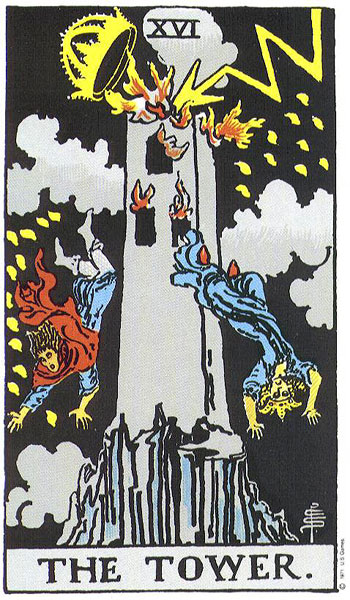Or how I stopped worrying and learnt to enjoy the dark ages.This post is an expansion of, or an apology for, an idea I've dropped a couple of times regarding how it is not a bad thing to be out of step with the times, in times like these.
One of the central myths of our culture is the Myth of Progress. This is the underlying belief that mankind is resolutely moving from a dark and toilsome past into a glorious enlightened future. While I think this myth has already long past its best-before date (probably sometime in the late nineteenth century) it still has a lot of staying power. "Medieval" and "old-fashioned" remain standard terms of opprobrium (although, interestingly enough, "old school" is not). Does this idea hold water? Is the present really better than the past, and the future best of all?
I've long ago decided its all bunkum. Let me begin with a bit of background to the Buddhist view of this question, before looking at actual history.
In the standard Buddhist cosmological/historical mythos, the peak moment occurred when the Buddha arose in the world. At that time, many highly advanced beings took rebirth in his vicinity. There was an explosion of bright consciousness in the world. Many of the most advanced attained arahantship in the Buddha's lifetime, or failing that, shortly thereafter. Each generation subsequently was composed only of those less advanced, with the "best and brightest" exiting the samsaric stage, until we reach the present world, inhabited by spiritual dullards, the slow learners held behind for yet another semester. There are texts detailing how this post-Buddha world is one of steady and slow decline, although we are far from bottoming out, things are steadily getting worse; physically, morally and spiritually.
You may or may not be inclined to believe in this mythos. And let me say that I didn't come to my view because of it, rather I like it because it re-inforces my own prejudice. So let's look at some trends in known history and see if we can determine progress or the reverse. One caveat before we get too bogged down in detail; we shouldn't romanticize the past either. I doubt very much whether there was ever a "golden age." The empire of Asoka comes closest, but that may be because we really know so little about it. This is samsara, after all, and it always has and always will, hurt. OK, let me run down a few observations.
Biological - We have a common image in the culture of paleolithic man as "nasty, brutish and short." This is largely a misconception and doesn't accord with the archeological evidence. Cro-Magnon man, the race that left those breath-taking cave paintings, was on average taller and bigger brained than the modern variety. He may have represented the biological peak of the species which has been degenerating ever since. These guys took down wooly mammoths with stone weapons, no small achievement. In fact, they may have been too good at it for there own long term good. By late Paleolithic times, the big game animals were largely extinct and the Cro-Magnon descendents were smaller, much less artistically gifted and mostly ate small animals like rabbits.
It has also been argued that civilization itself puts a stop to physical evolution by removing any real selective pressure on the species, resulting in the accumulation of disadvantageous mutations.
Labour - The idea that advancing progress means greater leisure is incredibly wrong. Anthropologists tell us that hunter-gatherers spend far less time earning a living than do agriculturalists. Industrial workers lose even more leisure, and in the information age many workers are approaching the biological limit of how many hours they can work. (Slash-and-burn agriculture in the tropics is probably the least laborious lifestyle ever achieved.)
A revealing case study is the very early shift in stone tool technology. The very first human tools were flake-tools. The proto-human knocked two rocks together to quickly produce sharp edged flakes. Almost any rocks would do. The resulting tools were disposable; as soon as they lost their edge, you threw them away and banged a couple more rocks.
Then some bright young thing hit on the idea of carefully shaping rock cores to produce specialized tools; choppers, scrappers and so forth. These tools, although better at what they did, took longer to make and thus had some value. You also had to be pickier about what rocks you used. They also required the development of a secondary technology of tools to shape the tools. What all this meant is that where the flake tool people could travel unencumbered, the core tool folk had to carry sacks of rocks around with them wherever they went. Progress?
Moving up to modern times, consider how are "improved" technologies are often more burdensome. The Model-T Ford was a miracle of simplicity. The average owner could do all his own maintenance and repairs with just a small tool-kit that came with the car. Modern autos come off the assembly line with more computer power than the Apollo moon rockets had. Mechanics require expensive computerized testing gear to even diagnose a problem. Is this bigger "sack of rocks" worth any improvement in performance?
The same could be said of computers; I won't go on and on with it because I'd just wax nostalgic over my good old trusty Commodore 64.
Culture - This is of course entirely subjective, but it seems to me that modern culture is at its very best derivative, and at its worst sheer pandering to the base emotions of sex and violence. Can anything in modern art hold a candle to the masters of the Renaissance? Didn't musical expression peak in the early nineteenth century? What about literature; who compares today to Chaucer, Shakespeare, Milton, Dante or Goethe? Like I said, this is subjective and your mileage may differ but it seems like everything worth saying in the arts was said better long ago.
Morality - Or perhaps we should call this Civility. As an example of how far morals have degenerated in two hundred years consider this episode from the War of 1812. When the Americans took York (now Toronto) it was largely defended by local colonial militia. The invading Yanks put the prisoners in a stockade and in the course of the next few weeks processed them. Each man who would sign an oath not to bear arms again against the United States in the current conflict was released "on parole" and even given his rifle back. When the British regulars retook York they tried to raise a local militia again to go on the offensive, but the parolees refused to join and the British accepted their refusal.
Think of that. And compare with the treatment of prisoners in Guatanamo by the descendents of those same soldiers.
Knowledge - This is one area where there has seemed to be real progress at least since about 1600. Yes, science has made all kinds of discoveries. But we need to be cautious and to balance the progress with other losses. Knowledge can be forgotten, and has been. The classic example is glass-making, which was known to the Romans but the technology was utterly lost after the fall of the empire, and only rediscovered in the latter Middle Ages.
A couple of years ago the government of Canada wanted to renovate the stone work on the Parliament buildings; a neo-gothic edifice covered in gargoyles and other stone sculpture. They couldn't find anyone in Canada with the requisite skill sets and had to hire men from Britain; all of them very elderly. The technology of detailed work in stone is going to be lost when those men die. We should also note that all over the world ancient and medieval stone art is being lost to the effects of acid rain and smog. Progress?
With new technologies, humans forget old skills. The invention of writing killed the faculty of memory. Calculators are killing mental arithmetic. GPS has already killed dead-reckoning.
Traditional herbalism and healing is being lost. I saw this in Thailand where there is still an old tradition in the villages of healers who can't find young students anymore. This list of examples could be greatly expanded.
-------
To be continued; I still want to deal with the more spiritual aspects but will save that for another post, it's getting late and this has already been a long post.


















![donations always welcome [alsmbowl]](http://arrowriver.ca/images/buttons/bowlbtn2.gif)